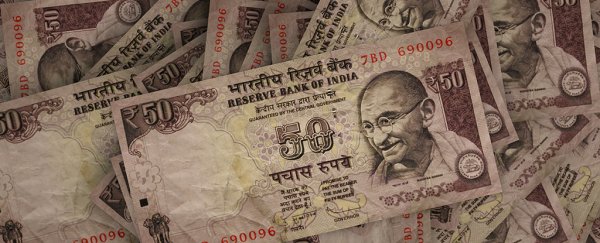Arvind Subramanian, Chief Economic Adviser to the Government of India, has issued a prediction that at least one or two of the country's states will implement an Indian universal basic income within the next two years.
Previously, the economist backed the idea in India's Economic Survey for 2016-17.
The concept of UBI has been gaining traction in India over the last few years.
In July 2017, talks were held to determine whether such an initiative could be brought to fruition, but opinion is still divided.
There are hopes that UBI could offer a way to support people who are put out of work by automation and other new technologies.
Various pilot schemes have established that there are tangible benefits to giving people a reliable source of income, but we're yet to see how it would be implemented on a large scale.
Given that India has a population of 1.3 billion, it would be unfeasible to roll out UBI nationally, but a state-by-state strategy might be more viable.
It's thought that UBI would offer less capacity for corruption than most anti-poverty schemes because all individuals are entitled to the same amount of money.
This would make it more difficult for malicious parties to siphon off funds for themselves.
Critics of UBI suggest that it will simply cause greater reliance on government subsidies, providing a short-term solution while ignoring the underlying problems of mass unemployment and unfair wealth distribution.
It's often said that recipients might misuse the money they receive, but recent trials indicate that the majority spend their UBI on essentials, as intended.
Most would agree that UBI shouldn't replace current welfare systems entirely.
However, the question of how to fund both programs alongside one another looms large, particularly given that roughly 22 percent of Indians live below the poverty line, and experience poor living conditions.
This article was originally published by Futurism. Read the original article.
